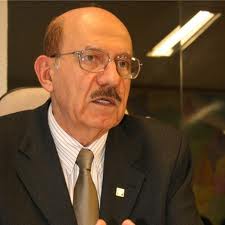
The chief minister of the Federal Comptroller General talks about the results of the Access to Information Law and its contribution to the prevention and reduction of corruption in the country.
1. The Access to Information Law is about to complete six months. What is your assessment of this period? Are the results in line with expectations?
The result is extremely positive and has exceeded CGU's expectations. The Access to Information Law “caught on”. In six months of validity, it has served to meet more than 44 thousand requests from citizens before federal agencies alone, a universe monitored by the CGU Electronic System. Around 93% of these requests have already been answered, 85% of which are positive, that is, satisfactorily meeting what the citizen sought to know.
The law has also been producing effects in addition to those resulting from strict compliance (which would be no small feat). And it has been causing spontaneous disclosure of information of great importance to society. The examples are many. As soon as it came into force, the Central Bank decided to open the full votes in Copom's decisions; the National Archives opened wide open documents of the dictatorship; Ibama disclosed the companies fined for biopiracy; Planning opened information on functional properties; and the federal government guaranteed full transparency to the salaries of 570 thousand civil servants and 350 thousand military personnel.
Therefore, the Access to Information Law is revolutionary and takes an important step towards the consolidation of the Brazilian democratic regime, insofar as it expands citizen participation and strengthens the instruments of control of public management.
2. How can citizens request information and monitor its progress? What is the average time to get the answers?
First, the citizen formulates the request, which can be made through the Electronic System of the Citizen Information Service, the e-SIC, which is available on the internet at the CGU website (www.cgu.gov.br). If he prefers, he can also go to the physical unit of the Citizen Information Service (SIC) of the public agency of the Federal Executive Branch of interest. In both cases, after inserting the request in the system, a protocol number will be generated, which allows you to monitor the progress of the access request, file appeals, submit complaints and consult the responses received. The agency that has to provide any clarification will do so by e-mail, without the need for the citizen to leave home.
Regarding the term, the Access Law establishes that, if access to information is available, the answer must be given immediately. When this is not the case, the defendant has a period of up to 20 days, extendable for another 10 days, to comply with the request. However, it is worth noting that the federal government has been able to respond to citizens in an average time of 10 days, that is, half of the expected legal term.
3. How can the Access to Information Law contribute to the fight against corruption in Brazil?
The Access Law acts as another instrument that contributes to the prevention of corruption, as has been the case since 2004, with the Transparency Portal, which offers anyone, through the internet, the possibility of knowing all the expenses that were paid by the government federal item by item (the amount, the purpose, who paid, who received, which program is associated, whether or not there was a bidding process). The law adds a new point of view to inspection, which makes it possible for the citizen to request the full amount, for example, of the contracts, the results of the audits, the list of agreements entered into, the list of civil servants in a specific public agency, among other data under the state guard.
The law allows citizens, from the access to documents produced by all the powers (Executive, Legislative and Judiciary) and spheres of government (municipalities, States and the Union), to make complaints of misuse of public resources. It opens information essential to the exercise of social control over government spending and the efficiency and quality of services provided by public administration. It is a very powerful tool in the hands of Brazilians. It needs to be used and used well.





